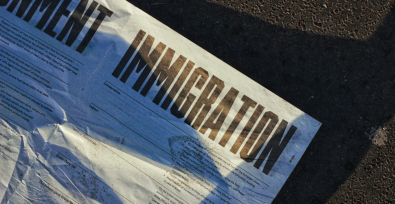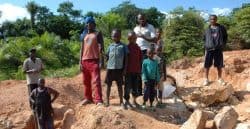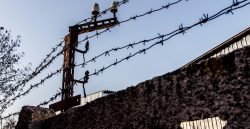The Córrego das Almas farm in Piumhi, in rural Minas Gerais state in Brazil, has a sign out front that reads “No slave or forced labor is allowed.”
While the farm has plenty of international certifications — including one promoted by Starbucks — it has now come to light that workers were subjected to degrading labor conditions and made to live in housing without sewage or drinking water.
Related Campaign: Help end forced labor.
Based on reports of exploitation, a team from Brazil’s Ministry of Labor raided the farm, rescuing 18 workers.
Eco Watch reports:
The farm, locally known as Fartura (Portuguese for Abundance), also boasts the UTZ seal—a Netherlands-based sustainable farming certificate considered one of the most prestigious in the coffee industry. That seal of approval was suspended after the certifier was questioned by Repórter Brasil about the case.
The farm also holds the C.A.F.E. Practices certification—owned by Starbucks in partnership with SCS Global Services. After hearing of the raid, the two companies responsible for issuing the seal said they would review the farm’s quality certificate. The certifiers verify commodity supply chains in order to assure ethical purchases, good labor practices and other criteria required by Starbucks and other retailers.
Evidence found at Fartura shows that the farm’s operating standards were far below those expected at a certified agricultural facility.
The employees lived in collective lodgings without drinking water. According to the inspectors, sanitation was so precarious that it put workers’ health at risk. The rescued group reported that dead bats were often found in the water tanks, which had no cover. This water was used for cooking and drinking.
In addition, the inspectors collected farm reports indicating that accounts payable were rigged. “We’d harvest and they’d leave it [the beans] there to be weighed the next day. When we arrived there, the coffee was gone. And then we were humiliated: we complained and they laughed in our faces,” said one of the rescued workers.
In response to this case, UTZ said, “Workers’ rights and wellbeing are of the utmost importance and are an integral part of our standard. We take those issues very seriously because something like that would violate the UTZ standard.”
Starbucks admitted that the Fartura farm had been certified since 2016 but denied having “purchased or received any coffee from this farm in recent years.”
“We are already investigating this matter and will continue to pay very close attention to issuances from the Ministry of [Brazilian] Labor and Employment and communicate expectations to our suppliers that no farm on the list may supply coffee to Starbucks,” read a statement from Starbucks.
Jorge Ferreira dos Santos, who heads the Coordination of Rural Employers of Minas Gerais and helped the Ministry of Labor rescue the workers, said this is just the latest case of a certification schemes failing to prevent abuse.
The certification system is weak and not transparent, said Santos, and fails at “taking workers’ views and reality into account.”







Freedom United is interested in hearing from our community and welcomes relevant, informed comments, advice, and insights that advance the conversation around our campaigns and advocacy. We value inclusivity and respect within our community. To be approved, your comments should be civil.